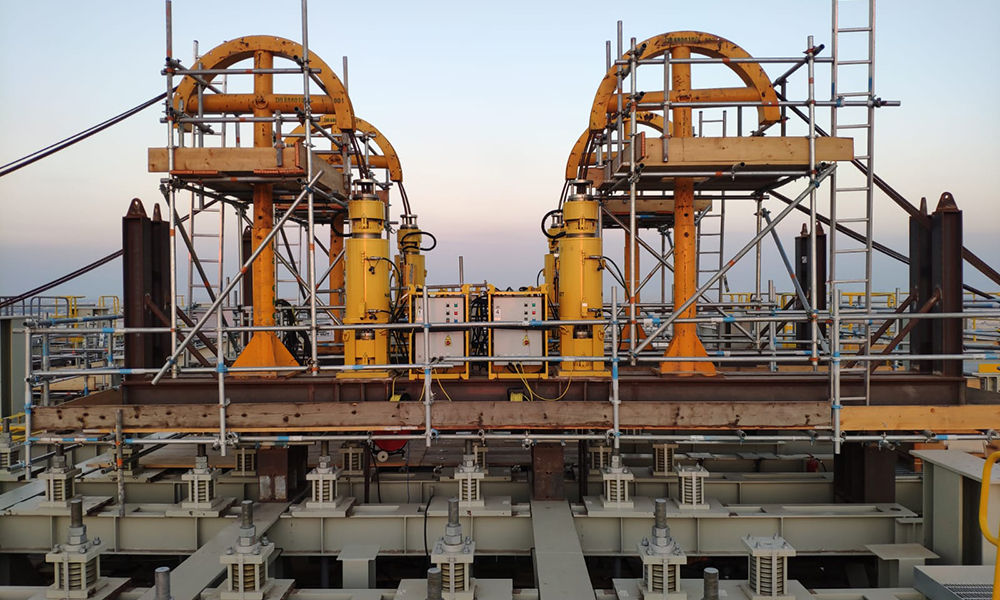Turkish heavy lifting company, Hareket, relied upon Enerpac strand jacks to install superheater and vaporisation modules at the UAE’s first waste-to-energy (WTE) facility in Sharjah.
Hareket said it undertook all heavy lift engineering and supervision of the strand jacking works at the project. This involved installing two temporary lifting platforms, each featuring two Enerpac 200t-capacity strand jacks per platform. The strand jacks were used to lift eight 77t superheaters and two 20t vaporiser modules up to 30m. Accurate positioning of the 16m high modules was synchronised by a single operator using a wireless controller on each platform.
Samet Gürsu, operations director, Hareket Heavy Lifting & Project Transportation Co., said: “This was our first deployment of the Enerpac strand jacks, and they performed very well, demonstrating the flexibility and innovation that Hareket brings to heavy lift projects where traditional lifting methods are impractical.”
The 200t capacity Enerpac strand jack acts like a linear winch. A bundle of steel cables or strands are guided through a hydraulic cylinder; above and below the cylinder are anchor systems with wedges that grip the strand bundle. By stroking the cylinder in and out while the grips are engaged in the anchors, a lifting or lowering movement is achieved.
The motion of the cylinders is driven by hydraulic power packs. The Enerpac SCC software program synchronises the motion of the strand jacks and adjusts the motion to the loads per lifting point.
Generating up to 30mW of electricity, the WTE facility in Sharjah will contribute to the emirate’s effort to achieve ‘zero waste-to-landfill’ and enable the UAE to meet its 2021 goal of diverting 75% of solid waste from landfills.
The facility will process around 37.5t of municipal solid waste per hour. It is located adjacent to the existing Bee’ah’s existing Material Recovery Facility inside the Bee’ah Waste Management Complex in Sharjah, where the emirate’s waste is collected, sorted and recycled, and residual waste sent to landfills. The project is also estimated to offset approximately 450,000t of CO2 emissions and substitute the use of 45 million cubic metres of natural gas a year.
